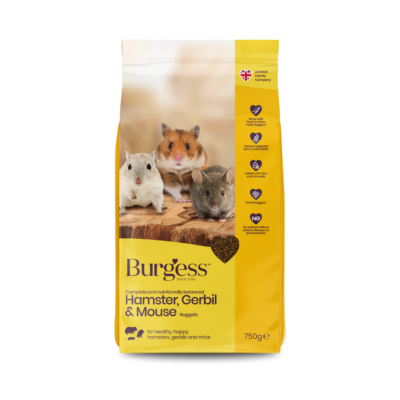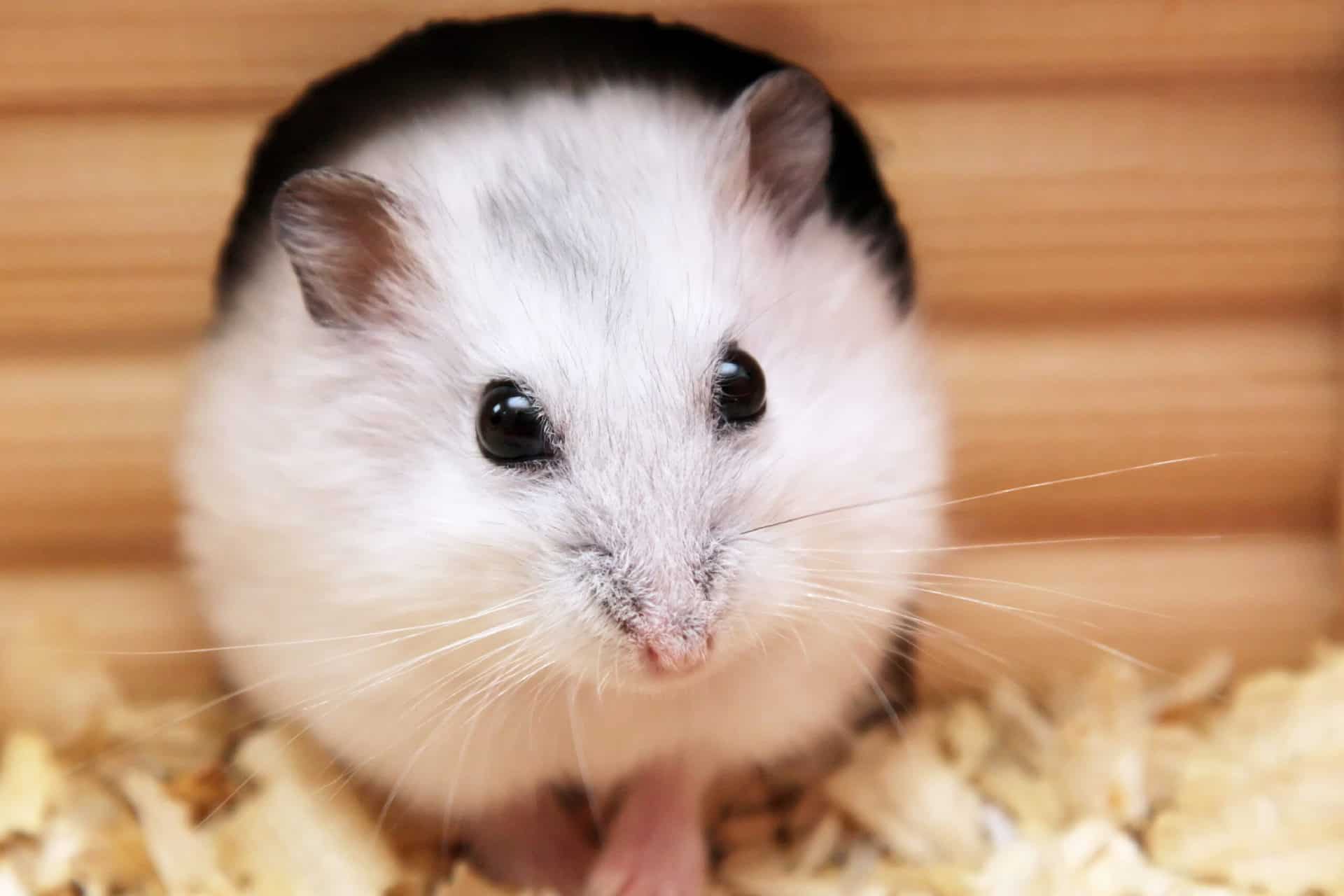Keeping your chinchillas fit and healthy
Check your chinchillas every day for any signs that they’re unwell. Take your chinchillas to the vet at least once a year. Chinchillas are prey animals so will hide signs of ill-health or pain, so annual vet visits are so important to avoid illness. Chinchillas need specialist care, so try to find a vet with experience in chinchillas.
If your chinchilla’s behaviour or their eating and drinking patterns change, take your chinchilla to the vet as soon as possible. One of the first warning signs to watch out for is a change in their droppings.
Common health problems
Hamster health check
If you feel like your hamster isn’t behaving like normal or their eating and drinking habits have changed, seek the advice of your vet. Because of their small size, a hamster’s health can quickly deteriorate if they become poorly.
Behaviour: You know your hamster best. Check if their behaviour is normal and they’re active and playful in the evening. Sick hamsters may be quiet and withdrawn, or could be irritable and bite more frequently.
Cheeks: Check for lumps in your hamster’s cheeks. This could be an impacted cheek pouch or an abscess. Lumps in the cheek may cause your hamster’s eye to close
Eyes: Your hamster’s eyes should be bright and not runny, watery or sticky/crusty with discharge
Fur: Check for any patches of hair loss, this could mean your hamster is chewing their fur or they’re rubbing against their cage. This could be a sign that your hamster is bored or their bedding is too rough. Hair loss can also be linked to nutritional or hormonal problems
Mouth and teeth: Check that your hamster’s teeth aren’t overgrown and they aren’t misaligned or chipped. Losing weight and a loss of appetite could be a sign of dental problems
Nails: Like with their teeth, hamster’s nails continuously grow. Playing with their wooden toys and in their sand bath should keep your hamster’s nails short. However, you should still check that they’re not overgrown – if they are, your vet can clip them safely
Nose: Make sure that your hamster’s nose is clean and dry and they aren’t sneezing
Quick tip

Hamster, Gerbil & Mouse
Neutering your hamster
Generally, you don’t need to neuter your hamster as they either prefer to live alone or like to live in same sex groups.
SYRIAN HAMSTERS:
Female Syrian hamsters are prone to Pyometra, an infection of the uterus. Neutering can help with this – it’s best to get the advice of a vet with experience in rodents.
Perfect for your hamster




Do you need more advice?
To help you find the right food for your pet have a look at our product range.
Alternatively you can call our free consumer care line on +44 1405 862241 between 9am and 5pm, Monday to Friday. Our dedicated team of pet experts will help you make the right choice.
If you should have any concerns about the health of your pet, always consult a vet.


















